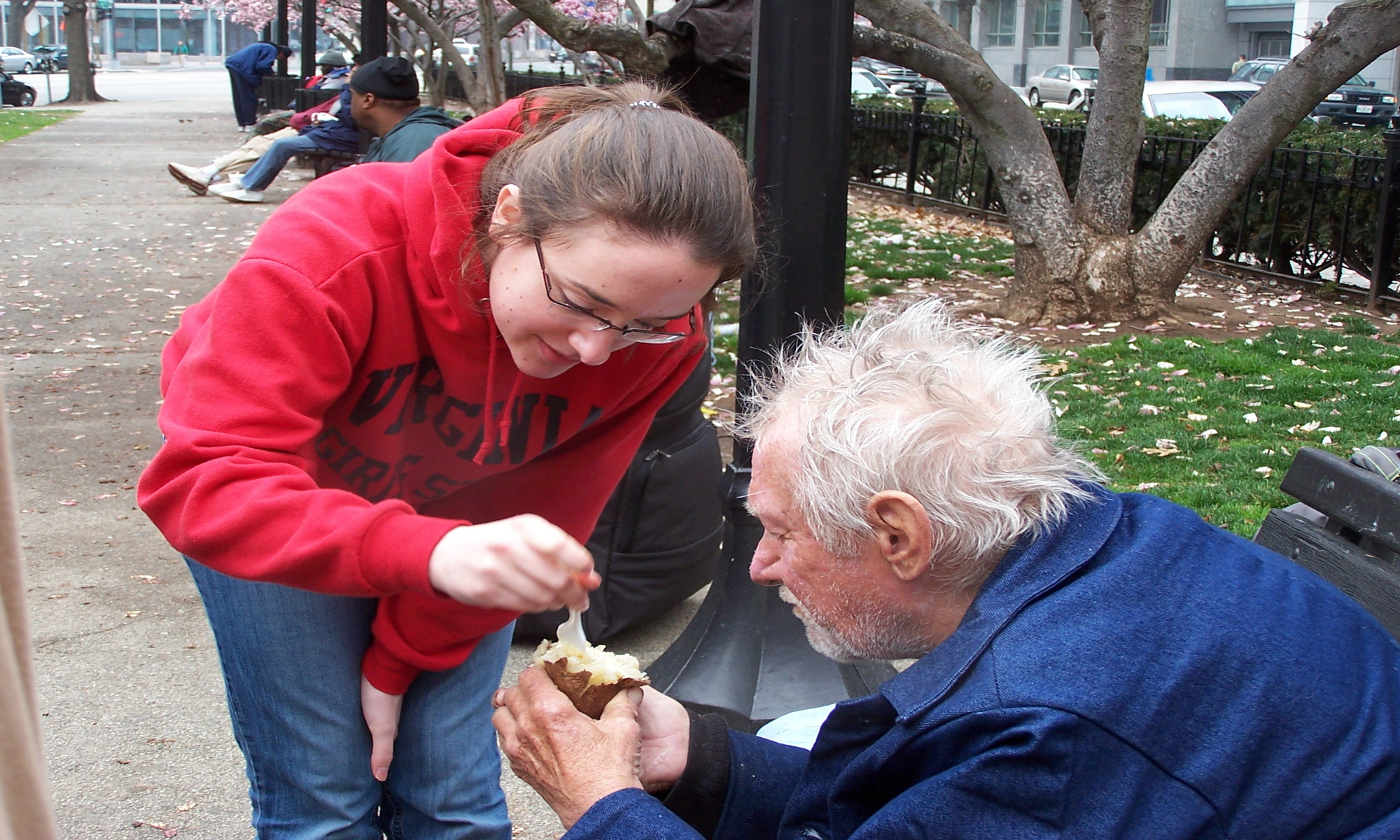Yesterday, I did a Q&A during the Youth Sunday Service at St. Andrews Presbyterian Church. One of the teens asked me this question: “What difference does TOP make in the lives of the homeless?”
I can’t remember my exact words, but here is the gist of my answer with a few things I wish I would have said:
TOP helps homeless people in two ways. First, we meet material needs by providing food, clothing, toiletries, packs and bags and other needed items. Over the years we have learned of things that are constantly in need, such as socks and underwear. We take these simple articles of clothing for granted, but they are often the very essence of human dignity for someone living on the street. People on the street also need help with transportation. In Washington, DC, the homeless can get three meals a day IF they can get to all the places that serve. Most of them can’t or won’t spend the time and energy it takes to get to meal programs if they have to walk. In 2007 we surveyed over 100 homeless people, and 68% ate only one meal a day on a frequent basis (3 or more times a week).
In my opinion, our focus on offering hope, friendship and encouragement is even more important than meeting the material needs. Something as simple as eye contact, a smile or a touch on the shoulder can mean the world to a homeless person. All week long they are herded like cattle or ignored. It’s dehumanizing. I have spent days and nights on the street with my homeless friends. Most of the time, people just walked past, deliberately turning their attention away from us. Even during these short stints on the street, I could feel my sense of worth fading. Something as simple as a smile and “how are you today?” was very uplifting.
No job training program, drug or alcohol program or any other program is going to work for homeless people without hope and believing that they can succeed. This is a huge, and often overlooked, obstacle to success. It takes consistent encouragement and an investment in their lives to instill this hope in people who have been downtrodden. It requires a relationship.
So what does TOP do? We meet physical needs and we are agents of joy, encouragement, grace, friendship and hope. Does it make a difference? You bet it does. Just ask our friends on the street and the ones who have made it off.
God’s grace to you,
Steve Jennings
Executive Director

